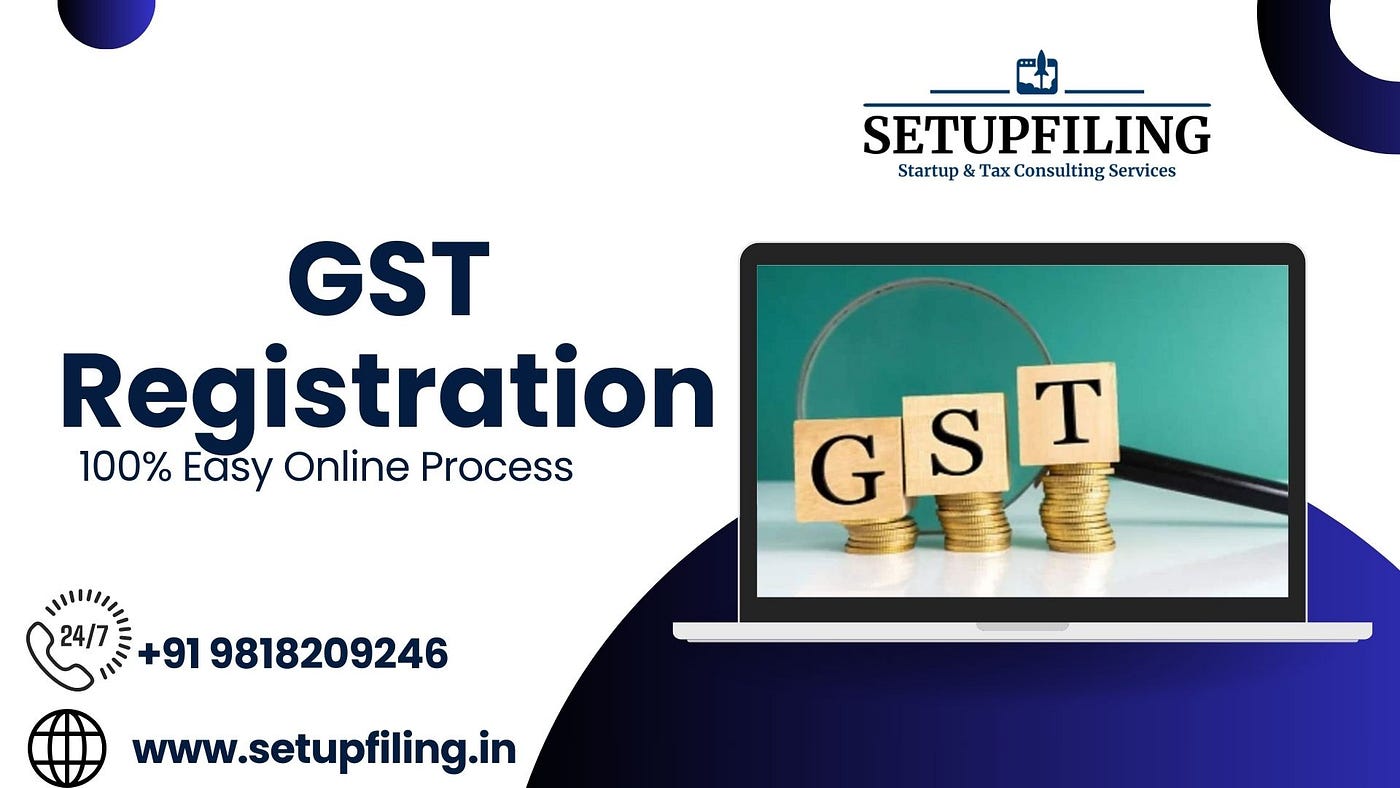Singapore GST Registration: What You Required to Know Before Using
Singapore GST Registration: What You Required to Know Before Using
Blog Article
Understanding GST Registration: Essential Steps to Guarantee Regulatory Conformity and Organization Growth
Navigating the world of Goods and Services Tax Obligation (GST) registration can be an essential action for organizations aiming to maintain compliance and foster development. The complex process of registering for GST requires an eager understanding of the essential steps included, from understanding the basic principles of GST to diligently preparing the called for documentation. However, beyond just checking off the regulative checkboxes, grasping GST enrollment opens a realm of possibilities for businesses to purposefully utilize this tax framework to move their development. Recognizing the nuances of GST registration is not simply a bureaucratic requirement however a tactical move that can shape the trajectory of a company towards sustainable success.
Comprehending GST Basics
Comprehending the essentials of Goods and Provider Tax Obligation (GST) is essential for companies to navigate the complexities of tax compliance and monetary monitoring successfully. GST is a value-added tax imposed on the supply of products and solutions in India, intending to create a unified tax system across the nation. Singapore GST Registration. Under GST, organizations need to sign up and acquire an unique GSTIN (Item and Provider Tax Obligation Identification Number) to be certified with the law

Readying Necessary Files
To make sure conformity with GST enrollment requirements, services need to gather and arrange the required papers for the application procedure successfully. The essential papers typically required for GST registration include evidence of business registration or incorporation, PAN card of the service, address and identity evidence of marketers, pictures, financial institution declarations, and evidence of address of the area of business.
Organizing these documents in an organized fashion can enhance the application procedure and demonstrate the service's commitment to governing conformity. Services should keep both physical and digital duplicates of these records for easy accessibility and referral. By preparing the needed documents carefully, businesses can accelerate their GST enrollment procedure and focus on their core operations with the assurance of regulative compliance.
Online Registration Process
Commence the GST enrollment process by browsing to the main online site marked for company enrollment. As soon as the account is established up, you can continue with filling out the GST enrollment application form by going into the needed organization details, including business address, turnover, and type information.

Compliance and Reporting Commitments
Upon effective enrollment on the GSTN site and completion of the essential documents, organizations have to abide by stringent compliance and reporting responsibilities to make certain regulatory adherence and operational openness. Conformity requirements under GST required exact and timely filing of various returns, such as GSTR-1 for external products, GSTR-3B for month-to-month summary returns, and yearly returns like GSTR-9. In addition, businesses need to integrate their sales and acquisition data with GSTR-2A and GSTR-2B to case input tax credit ratings properly.
Maintaining appropriate records of invoices, accounting records, and other pertinent data is vital for GST conformity. Regular audits and analyses by tax authorities demand organizations to have precise paperwork and reporting systems in place. Any kind of discrepancies or non-compliance can bring about fines, fines, or even suspension of GST registration.
To enhance conformity procedures, businesses can take advantage of GST conformity software program that automates return declaring, compliance, and reconciliation monitoring. When required can additionally enhance compliance initiatives and make certain smooth procedures within the GST framework., remaining updated with governing changes and looking for expert suggestions.
Leveraging GST for Organization Development
One crucial advantage of GST is the input tax credit score system, which permits businesses to claim view credit ratings for taxes paid on inputs. Furthermore, GST advertises openness and accountability in the tax system, which can aid organizations build count on with customers and companions.
In addition, GST enrollment can also open brand-new markets for services. Being GST-compliant can enhance trustworthiness and make it less complicated to broaden operations across state borders. This not only enhances market reach however likewise fosters a competitive edge in the marketplace. By aligning with GST policies, services can adjust to transforming market characteristics and remain ahead of the competition. Essentially, leveraging GST for company growth involves calculated planning, effective compliance, and a positive method to financial administration.
Final Thought
Finally, understanding GST registration is vital for guaranteeing governing compliance and helping with company development. By recognizing the essentials of GST, preparing required papers, completing the this link on-line enrollment process, and meeting conformity and reporting obligations, businesses can take advantage of GST to their advantage. It is necessary for companies to stick to the regulations and make use of GST as a tool for increasing their procedures and remaining competitive in the marketplace.
Navigating the realm of Goods and Services Tax Obligation (GST) enrollment can be a pivotal action for businesses intending to preserve conformity and foster growth. The vital files typically needed for GST enrollment consist of evidence Visit Your URL of organization enrollment or incorporation, Frying pan card of the address, identity and service evidence of promoters, photos, financial institution statements, and evidence of address of the place of business.Begin the GST registration process by browsing to the main online website marked for organization registration. Once the account is set up, you can continue with filling out the GST registration application type by entering the required business information, consisting of business kind, turn over, and address information.
By comprehending the essentials of GST, preparing necessary papers, completing the on the internet enrollment procedure, and satisfying compliance and reporting obligations, services can leverage GST to their advantage.
Report this page